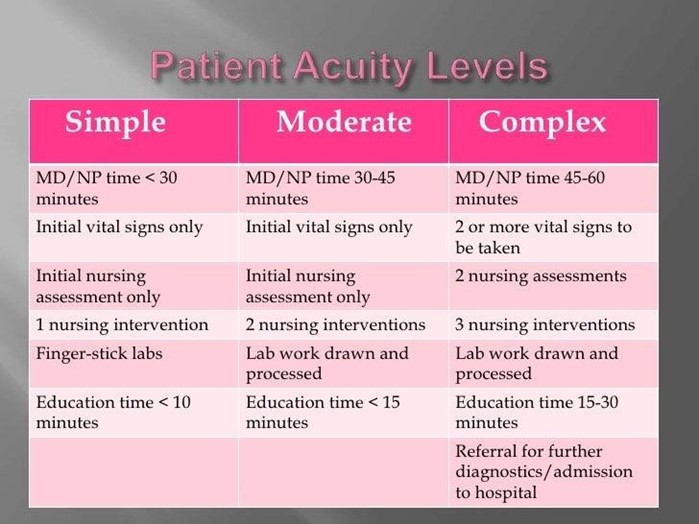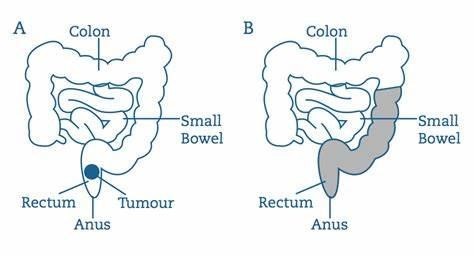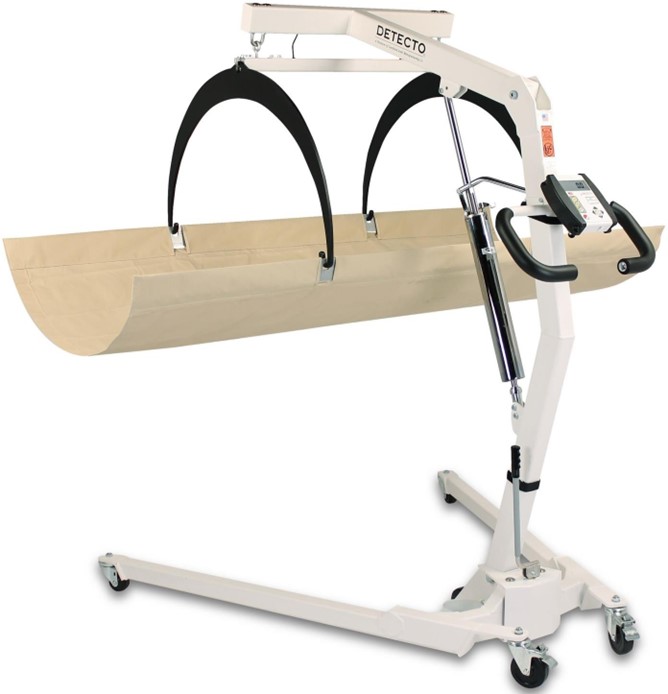The charge nurse needs to determine if an additional nurse should be called to help staff the unit for the next shift. Which information is most important for the charge nurse to consider when making this decision?
The acuity level of the clients on the unit.
The physicians' plans to perform procedures on the unit.
The number of clients leaving the unit for diagnostic tests.
The skill level of the personnel staffing the unit.
The Correct Answer is A
Choice A Reason: This is the correct answer because the acuity level of the clients reflects their complexity and intensity of care needs. The higher the acuity level, the more time and resources are required to provide safe and quality care. The charge nurse should consider the acuity level of the clients when determining the appropriate nurse-to-client ratio and staffing needs.
Choice B Reason: The physicians' plans to perform procedures on the unit is not the most important information for the charge nurse to consider because it does not directly affect the nursing workload or staffing requirements. The charge nurse should coordinate with the physicians and other departments to ensure that the procedures are scheduled and performed safely and efficiently.
Choice C Reason: The number of clients leaving the unit for diagnostic tests is not the most important information for the charge nurse to consider because it does not indicate the level of care that the clients need or receive. The charge nurse should ensure that the clients are prepared and accompanied for their tests and that their care is continued and monitored on their return.
Choice D Reason: The skill level of the personnel staffing the unit is not the most important information for the charge nurse to consider because it does not reflect the actual demand or supply of nursing care. The charge nurse should assign and delegate tasks according to the personnel's skill level and scope of practice but also consider other factors such as client acuity, availability, and preference.

Nursing Test Bank
Naxlex Comprehensive Predictor Exams
Related Questions
Correct Answer is A
Explanation
Choice A reason: This client may have an infection or sepsis, which are life-threatening complications of surgery. The nurse should assess the client's vital signs, wound appearance, and laboratory results, and notify the physician immediately.
Choice B reason: This client has a chest tube to drain the pleural fluid and re-expand the lung. The amount of drainage is within normal limits and does not indicate an emergency. The nurse should monitor the client's respiratory status, oxygen saturation, and chest tube function.
Choice C reason: This client has a gunshot wound that may have caused tissue damage and bleeding. The dressing with 2 cm-sized dark red drainage may indicate fresh bleeding, but it is not excessive. The nurse should check the dressing for signs of infection, change it as ordered, and report any changes to the physician.
Choice D reason: This client has a Jackson-Pratt drain to collect the fluid from the surgical site after a mastectomy. The amount of serosanguineous fluid is expected and does not indicate a problem. The nurse should empty and measure the drain output, record it, and report any abnormalities to the physician.

Correct Answer is B
Explanation
Choice A Reason: Asking the client why he does not want to be weighed is not a priority action because it does not address the need to obtain his daily weight. The nurse should first try to find a way to weigh the client without causing him discomfort or distress.
Choice B Reason: This is the correct answer because weighing the client using a bed scale can avoid the need for
transferring him from the bed to a standing scale, which may be difficult or painful for him. The bed scale can provide an accurate measurement of his weight and help monitor his fluid status.
Choice C Reason: Directing the UAP to delay weighing the client until later is not an appropriate action because it may result in missing or inaccurate data. The nurse should ensure that the client is weighed at the same time every day, preferably in the morning, before any fluid intake or output.
Choice D Reason: Documenting that the client refused daily weights is not an adequate action because it does not reflect the nurse's responsibility to provide quality care for the client. The nurse should try to resolve the issue of weighing the client and documenting the outcome and any interventions.

Whether you are a student looking to ace your exams or a practicing nurse seeking to enhance your expertise , our nursing education contents will empower you with the confidence and competence to make a difference in the lives of patients and become a respected leader in the healthcare field.
Visit Naxlex, invest in your future and unlock endless possibilities with our unparalleled nursing education contents today
Report Wrong Answer on the Current Question
Do you disagree with the answer? If yes, what is your expected answer? Explain.
Kindly be descriptive with the issue you are facing.
